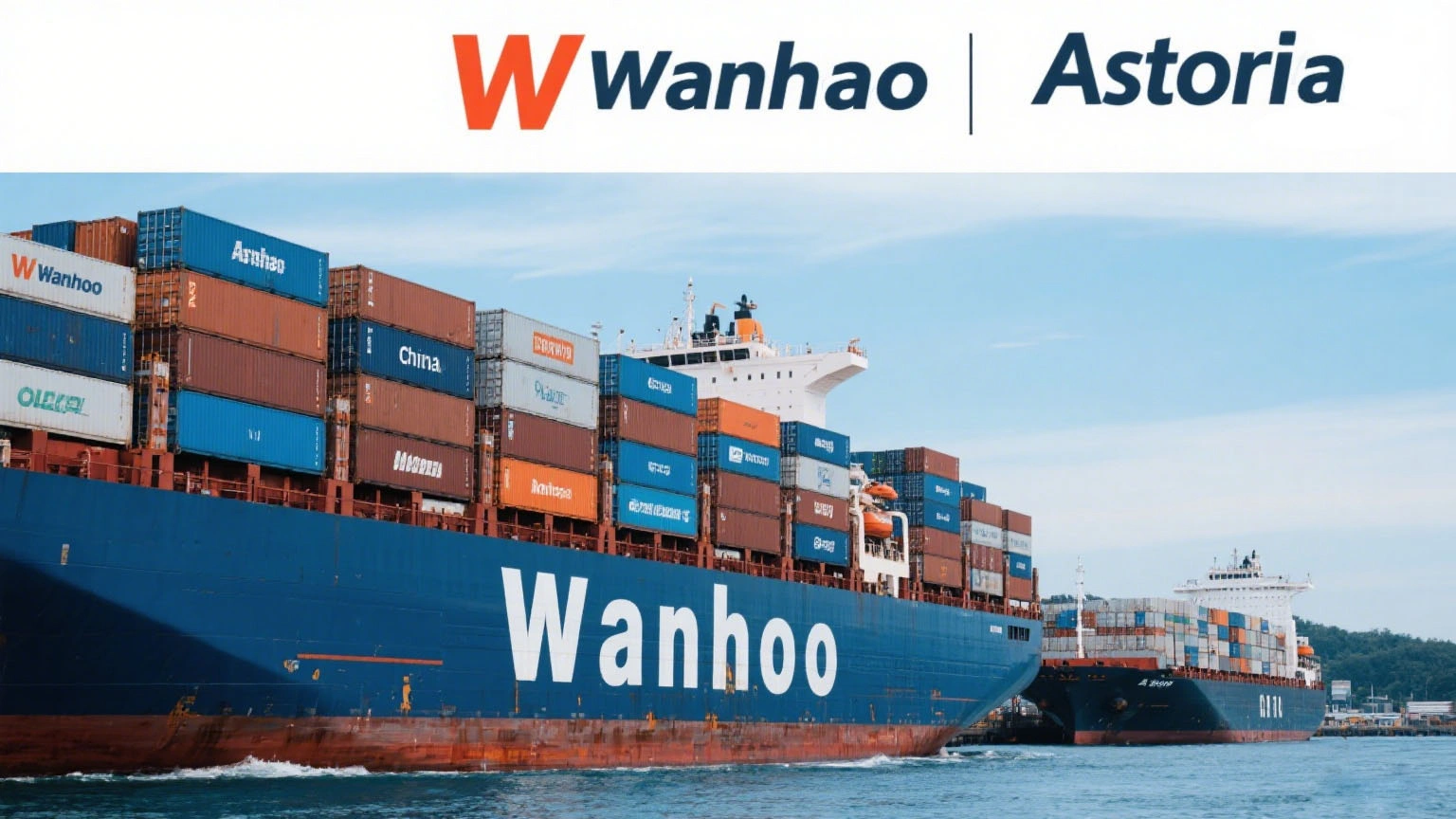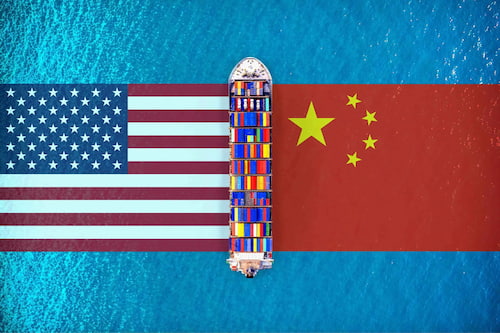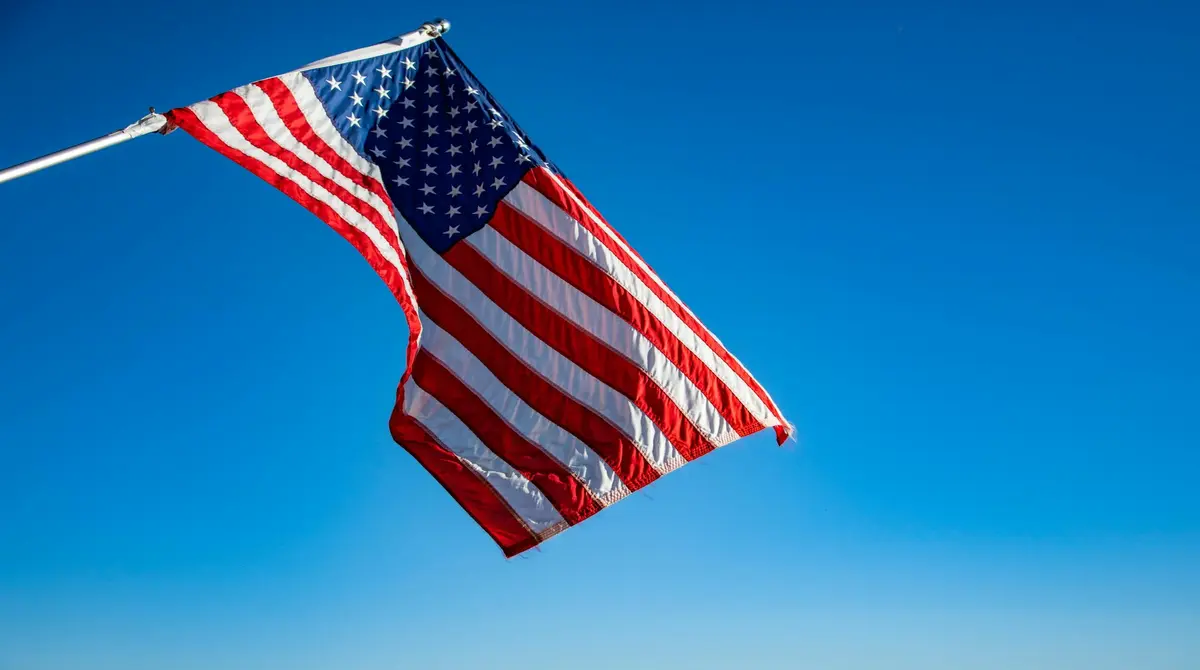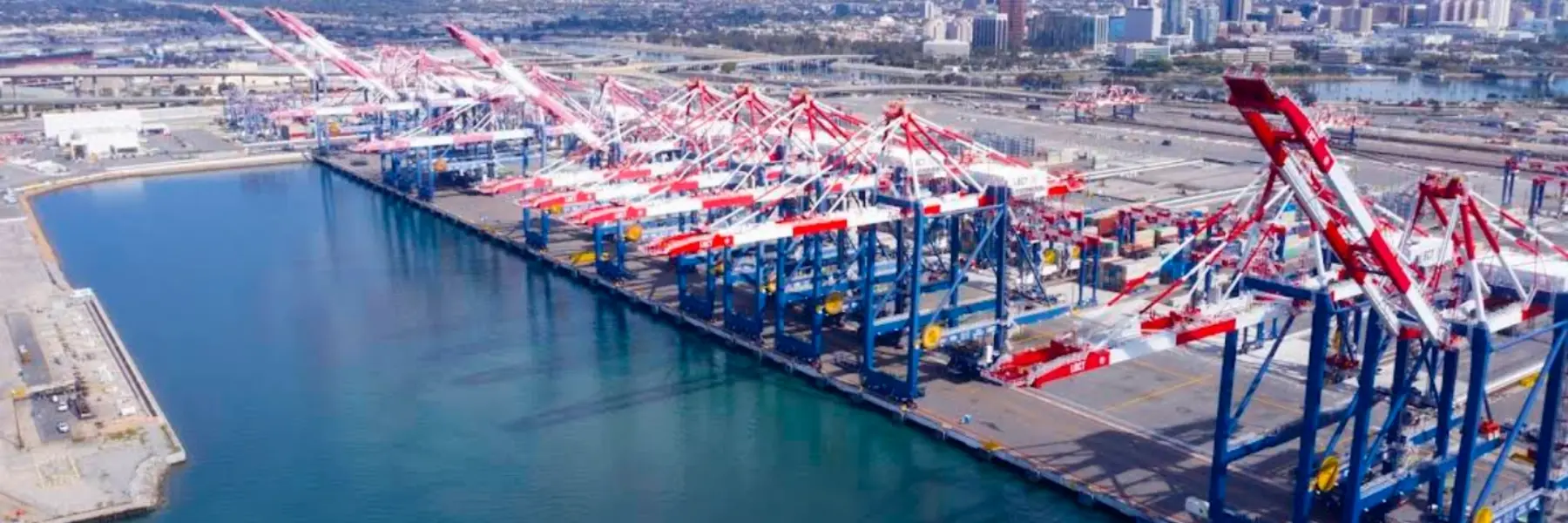
Shipping from China to Astoria: Complete Guide on Freight, Schedules & Customs by WanHao
As a strategic port city in Oregon, Astoria serves as a key gateway for goods entering the U.S. Pacific Northwest—making shipping from China to Astoria a critical link for businesses in industries like manufacturing, agriculture, and retail. Whether importing industrial equipment for Astoria’s maritime sector, agricultural machinery for nearby farms, or consumer goods for regional stores, navigating freight options, costs, and customs rules demands expertise and a trusted partner. WanHaoFreight forwarder, a leading China Freight forwarder and freight forwarder with deep experience in trans-Pacific logistics, simplifies this process by offering tailored solutions for Ocean FCL, Ocean LCL, Ocean Freight, and Airfreight. This guide breaks down every critical aspect of shipping from China to Astoria, including freight costs, shipping schedules, and destination port customs clearance considerations, while integrating key keywords and industry-specific long-tail phrases for optimal SEO.
When it comes to shipping from China to Astoria, partnering with a reliable freight forwarder like WanHaoFreight forwarder eliminates the complexity of international logistics. As a full-service China Freight forwarder, their team manages every stage of the journey: from coordinating with carriers at China’s top international seaports (Shanghai, Ningbo, Shenzhen, Guangzhou) to arranging inland transport from U.S. ports to Astoria.
WanHaoFreight forwarder’s core advantages include:
Negotiated rates with major carriers (Maersk, COSCO, Columbia River Pilots) for Sea freight and Airfreight, ensuring competitive pricing for Astoria-bound cargo.
Real-time shipment tracking, from departure at Chinese international seaports to delivery at Astoria’s industrial zones or warehouses.
In-depth knowledge of U.S. Pacific Northwest customs regulations, minimizing delays at ports like Portland (Oregon’s primary entry point for Astoria-bound goods) or Seattle.
Personalized solutions for all cargo types—whether bulk shipments via Ocean FCL, small loads via Ocean LCL, or urgent parcels via Airfreight (critical for time-sensitive items like maritime repair parts).
For businesses new to shipping from China to Astoria, WanHaoFreight forwarder also provides free consultations to help select the right freight method, making global trade accessible for startups, local farms, and large enterprises alike.
Ocean FCL (Full Container Load) is the ideal choice for shipments exceeding 15 cubic meters, offering exclusive use of a shipping container to reduce damage risks and lower cost per unit. This option is popular among Astoria’s manufacturers importing heavy machinery, construction companies sourcing building materials, and agricultural businesses bringing in irrigation equipment—all common use cases for shipping from China to Astoria.
Container Sizes: Standard options include 20ft (33 cubic meters) and 40ft HC (76 cubic meters); high-cube containers are perfect for tall items like industrial cranes or farm harvesters.
Freight Costs: Rates vary by origin port, U.S. entry port, and season. Typical examples include:
Shanghai to Port of Portland (Oregon’s busiest port, 100 miles from Astoria): $2,100–$3,300 for a 20ft container; $3,200–$4,800 for a 40ft HC.
Shenzhen to Port of Seattle (alternative entry point): $2,300–$3,500 for a 20ft container; $3,500–$5,200 for a 40ft HC.
Additional costs: Terminal handling charges ($180–$300), inland trucking from U.S. ports to Astoria (Portland to Astoria: $220–$380; Seattle to Astoria: $450–$650), and customs clearance fees ($120–$220).
Shipping Schedules: Transit times average 25–38 days door-to-door. From Shanghai to Portland, Sea freight takes 16–22 days, plus 1–3 days for customs clearance and 1 day for inland transport to Astoria (a 2-hour drive from Portland). From Shenzhen to Seattle, ocean transit extends to 18–24 days, with total door-to-door time 28–40 days.
Peak Season Advice: Book 4–6 weeks in advance during July–September (harvest season for Pacific Northwest farms) and January–February (Chinese New Year), as container shortages and rate surcharges (15–25%) are common for shipping from China to the U.S. West Coast.
Ocean LCL (Less than Container Load) caters to shipments under 10 cubic meters, allowing businesses to share container space with other cargo—ideal for Astoria’s small businesses, e-commerce sellers, and local artisans importing textiles, electronics, or handcrafted goods. This option eliminates the need to pay for an entire container, making shipping from China to Astoria more affordable for low-volume needs.
Freight Costs: Rates average $42–$78 per cubic meter, with minimum charges of $62–$102 for shipments under 1 cubic meter. For example:
5 cubic meters of artisanal home goods from Guangzhou to Astoria: $210–$390 (base rate) + $85–$155 (handling fees) + duties (4–11% of cargo value, depending on HS code).
Note: Costs are calculated by “chargeable weight”—whichever is higher: actual weight or volume weight (length x width x height / 6000).
Shipping Schedules: Transit times are 30–45 days door-to-door—slightly longer than Ocean FCL due to consolidation/deconsolidation at international seaports and U.S. entry ports. For instance, Shanghai to Portland via LCL takes 20–26 days at sea, plus 3–5 days for sorting and inland transport to Astoria.
WanHaoFreight forwarder’s Advantage: They consolidate LCL cargo at Chinese international seaports to reduce transit time, ensuring shipments reach Astoria’s downtown boutiques or waterfront businesses on schedule—critical for seasonal retail demand.
Ocean Freight (or Sea freight) accounts for over 85% of shipping from China to Astoria, thanks to its cost efficiency and ability to handle large, heavy cargo that would be prohibitively expensive to ship by air. Astoria’s proximity to the Columbia River (a major inland waterway connecting to the Port of Portland) makes Sea freight the most practical choice for most businesses, as it avoids long overland hauls from distant ports.
Route Options: The Port of Portland is the preferred entry point for Astoria-bound cargo (shorter inland transport and direct access via the Columbia River), while the Port of Seattle is used for overflow during peak seasons. Both ports offer weekly sailings from China’s international seaports, with carriers like Hapag-Lloyd and CMA CGM providing reliable service.
Cost Drivers: Fuel surcharges (bunker fees), exchange rates (USD/CNY), and seasonal demand impact rates. For example, rates can drop by 10–18% in off-peak months (March–June) for shipping from China to the U.S. Pacific Northwest, as cargo volume decreases after the holiday rush.
Sustainability: Many carriers now offer eco-friendly Sea freight options (slow steaming, carbon offset programs), which WanHaoFreight forwarder can recommend for Astoria businesses prioritizing green logistics—critical for farms and maritime companies focused on environmental stewardship.
For Astoria businesses needing urgent deliveries—such as maritime repair parts for local shipyards, medical supplies for Columbia Memorial Hospital, or perishables (e.g., fresh seafood for restaurants)—Airfreight is the optimal choice for shipping from China to Astoria. It drastically reduces transit time, ensuring cargo arrives when it’s needed most.
Freight Costs: Rates range from $5.2–$10.2 per kilogram, with discounts for shipments over 100kg (e.g., $4.2–$8.2 per kg for 500kg+ cargo). For example:
110kg of ship engine parts from Beijing to Astoria Regional Airport (AST): $572–$1,122 (base rate) + $100–$210 (handling fees) + $55–$110 (insurance).
Note: Dimensional weight applies for lightweight, bulky items—carriers use this to calculate costs if it exceeds actual weight (e.g., large but light maritime safety equipment).
Shipping Schedules: Transit times average 5–10 days door-to-door. From Shanghai to Astoria Regional Airport, cargo typically flies to Portland International Airport (PDX) first (12–18 hours airport-to-airport), then undergoes 1–3 days of customs clearance and 1 day of local delivery to Astoria.
WanHaoFreight forwarder’s Support: They partner with airlines like Air China, Delta, and Alaska Airlines to secure priority cargo space, even during peak travel seasons (e.g., summer tourism in the Pacific Northwest), ensuring urgent Astoria-bound shipments aren’t delayed.

U.S. Customs and Border Protection (CBP) has strict regulations for goods entering the country—non-compliance can lead to delays, fines, or cargo seizure. WanHaoFreight forwarder helps Astoria businesses navigate these rules seamlessly, but here are key considerations for shipping from China to Astoria:
Commercial Invoice: Must include detailed product descriptions, HS codes, quantities, declared values, and country of origin (critical for duty calculations and CBP verification—especially for agricultural goods).
Packing List: Itemized by package, with weight, volume, and contents (e.g., “6 cartons of maritime navigation equipment, 8kg each”).
Bill of Lading (BOL) (for Sea freight) or Air Waybill (AWB) (for Airfreight): Issued by the carrier, proving ownership of the cargo.
Certificate of Origin (COO): To qualify for preferential tariffs under U.S.-China trade agreements (e.g., reduced duties for certain manufacturing parts used in Astoria’s shipyards).
Banned items: Illegal drugs, counterfeit products, weapons, and uninspected agricultural goods (e.g., fresh produce without a phytosanitary certificate—critical for protecting Pacific Northwest farms).
Restricted items: Maritime safety equipment requires approval from the U.S. Coast Guard; medical devices need FDA certification; and alcohol/tobacco require additional permits from Oregon’s Liquor and Cannabis Commission.
Duty Rates: Average 0–14% for most goods. For example, 2.5% for consumer electronics, 9% for textiles, and 12% for certain industrial machinery (e.g., ship repair tools). WanHaoFreight forwarder helps classify products using HS codes to ensure accurate duty calculations for shipping from China to Astoria.
Taxes: Oregon has no state sales tax, but local taxes may apply to commercial imports (e.g., Astoria’s business license tax for goods sold within city limits).
CBP conducts random inspections on 5–10% of shipments; WanHaoFreight forwarder provides on-the-ground support to resolve any issues (e.g., document discrepancies) quickly—critical for time-sensitive cargo like maritime parts needed for ship repairs.
For commercial imports over $2,500, a Customs Bond (10% of the total duty amount) is required to guarantee compliance with U.S. regulations.
Ready to streamline shipping from China to Astoria? Follow these simple steps to Get A Quote from WanHaoFreight forwarder:
Share Cargo Details: Provide information like cargo type (e.g., “maritime repair parts”), weight/volume (e.g., “250kg, 12 cubic meters”), pickup location in China (e.g., “Shenzhen warehouse”), and delivery address in Astoria (e.g., “Astoria Shipyard, West Marine Drive”).
Choose Your Freight Method: Specify if you prefer Ocean FCL, Ocean LCL, or Airfreight—or let WanHaoFreight forwarder recommend the best option based on your timeline and budget (e.g., Ocean LCL for small farm equipment, Airfreight for urgent ship parts).
Receive a Transparent Quote: The team will respond within 24 hours with a detailed breakdown of all costs (freight, duties, handling fees) and a customized shipping schedule.
Book and Track: Once confirmed, WanHaoFreight forwarder coordinates pickup, loading, and shipping—with real-time tracking available via their online portal or mobile app, so you can monitor your cargo’s journey to Astoria.
In a competitive logistics market, WanHaoFreight forwarder differentiates itself by focusing on Astoria-specific needs:
Local Expertise: Deep knowledge of Astoria’s logistics network, including partnerships with local trucking companies (like Astoria Freight Lines) for last-mile delivery to shipyards, farms, and downtown businesses.
Flexibility: Custom solutions for unique cargo—such as weather-resistant containers for goods transported via the Columbia River (to protect against rain) or temperature-controlled shipping for perishables (e.g., fresh seafood for Astoria’s restaurants).
Transparency: No hidden fees—all costs and schedules are clearly communicated upfront, so Astoria businesses can budget accurately for shipping from China.
24/7 Support: A dedicated team is available around the clock to answer questions or resolve issues, whether your cargo is at a Chinese international seaport or stuck in customs at the Port of Portland.
For businesses looking to expand into Astoria or optimize existing supply chains, partnering with WanHaoFreight forwarder isn’t just a logistics choice—it’s a strategic investment in smooth, cost-effective shipping from China to Astoria. Get A Quote today and experience stress-free global trade tailored to the Pacific Northwest’s unique needs.

 Easy Shipping From Global, Save Cost
Easy Shipping From Global, Save Cost














